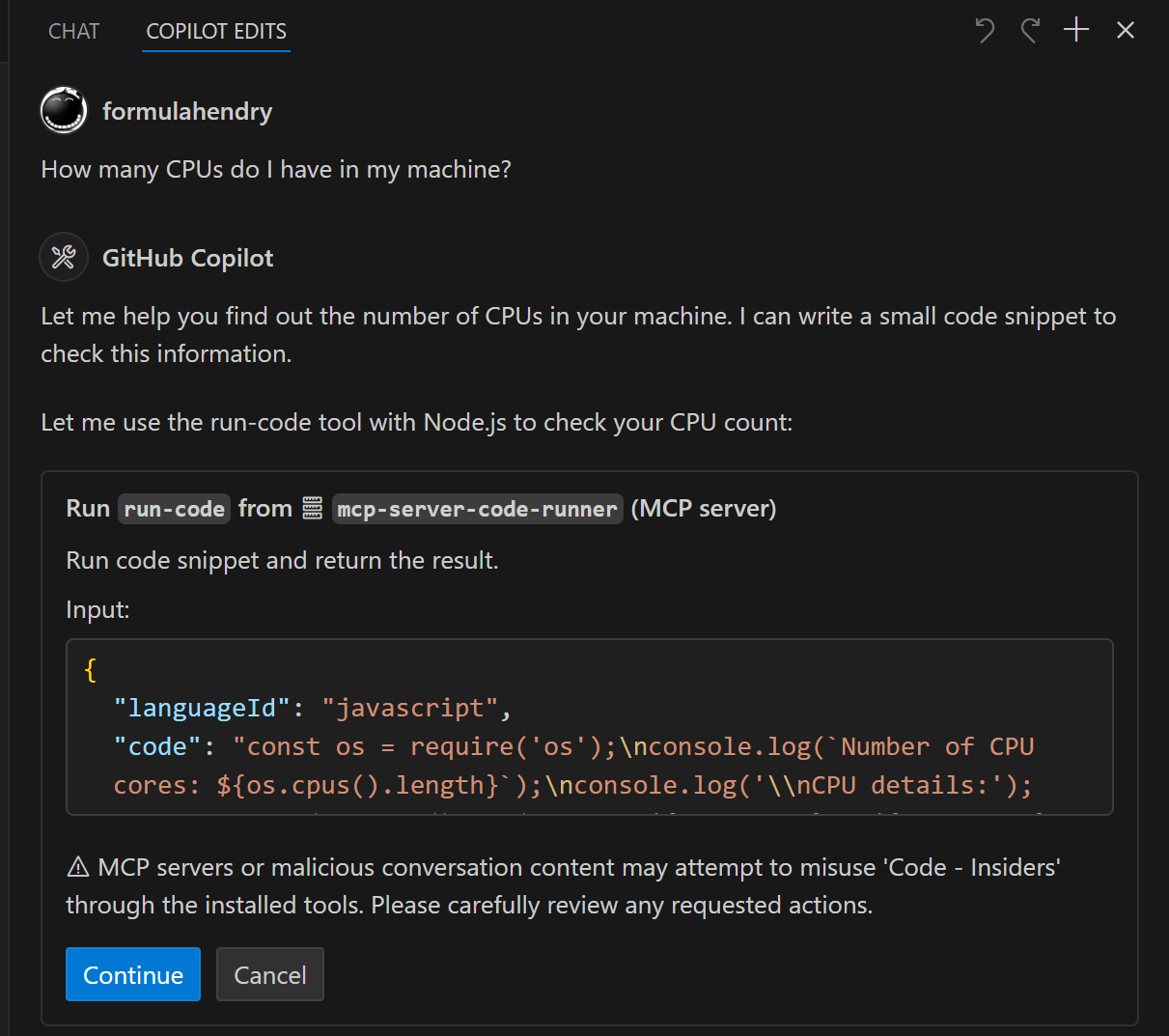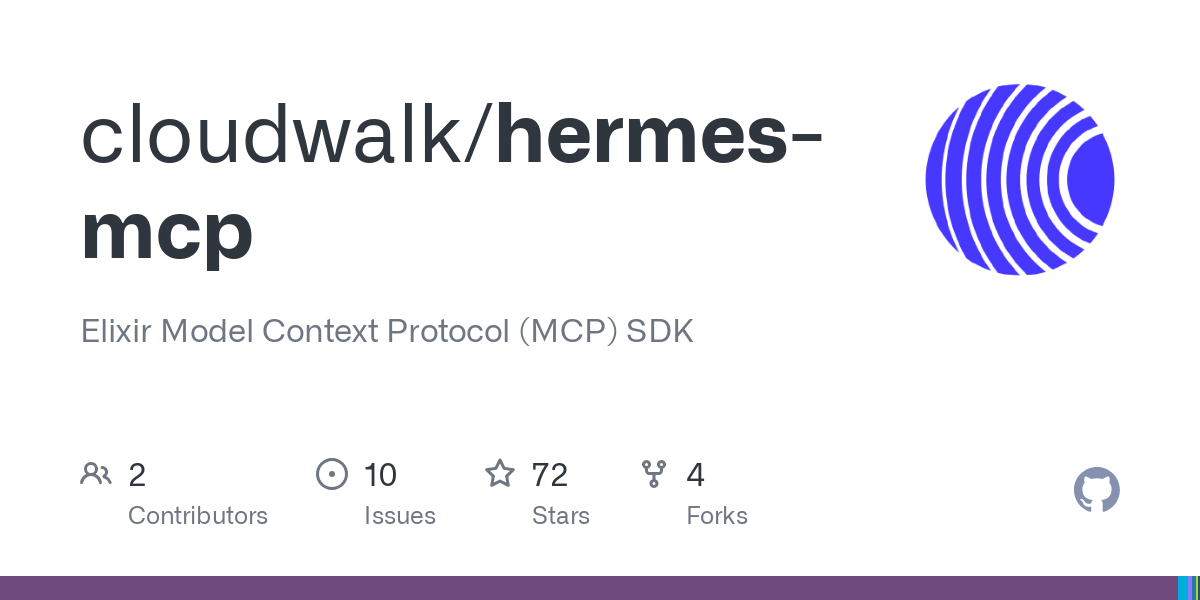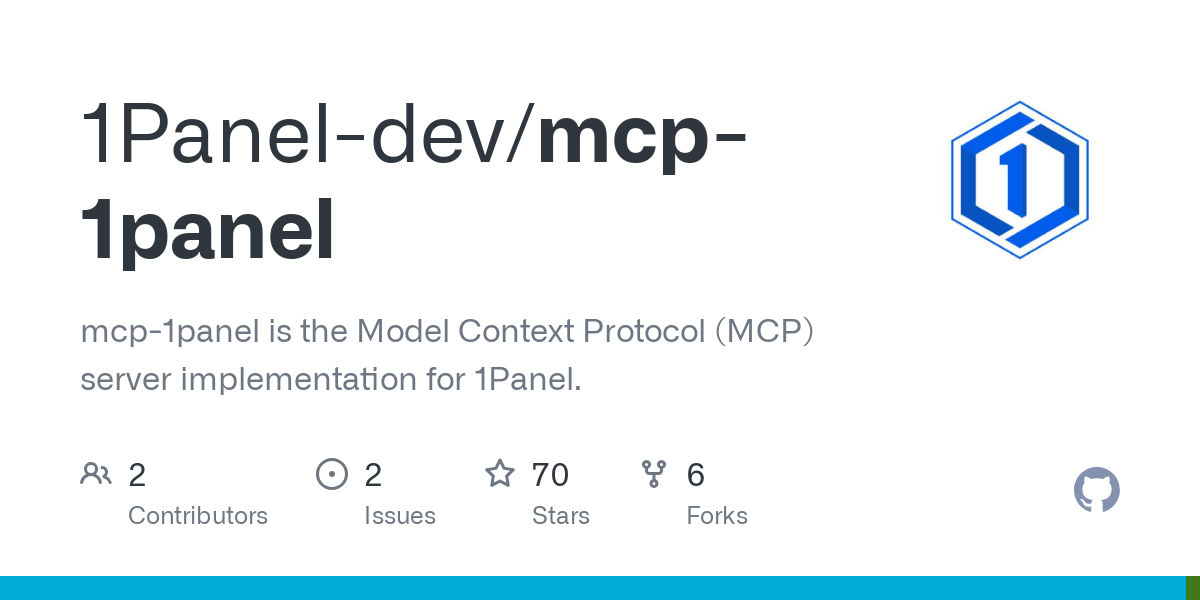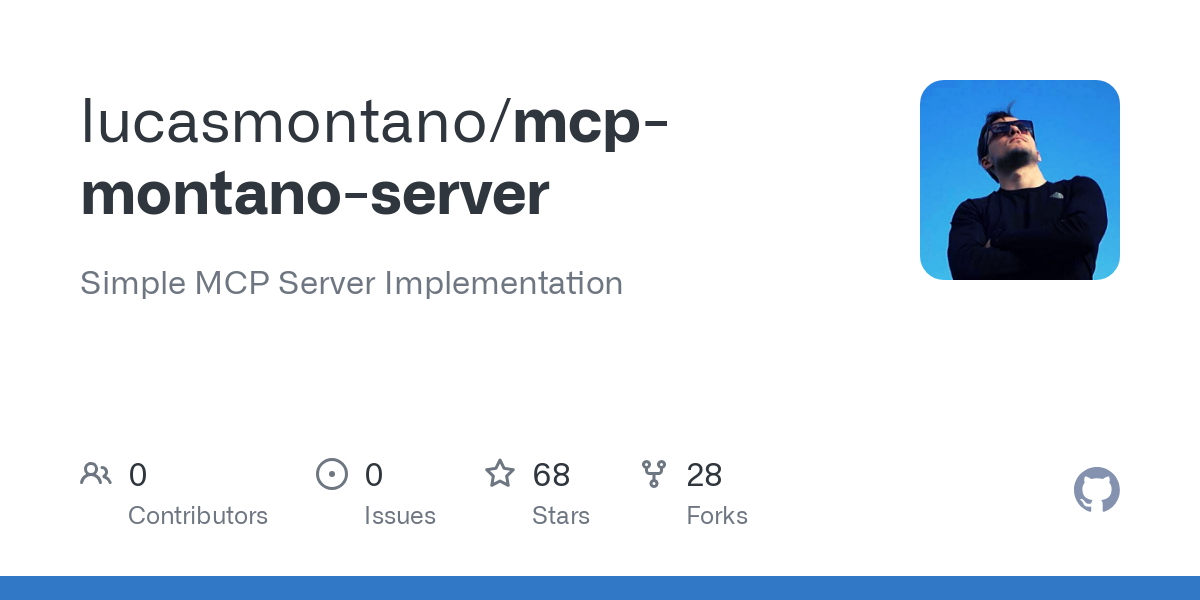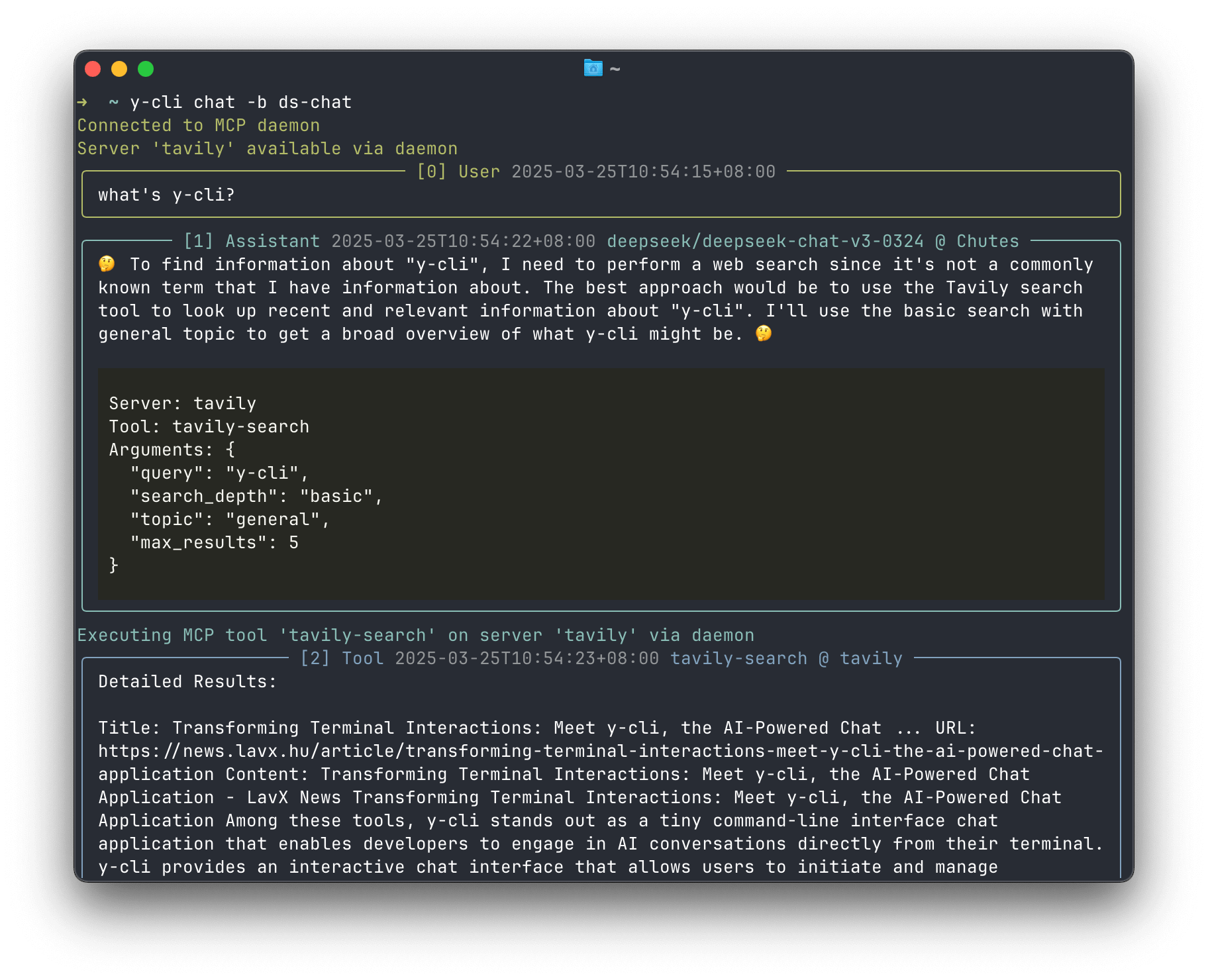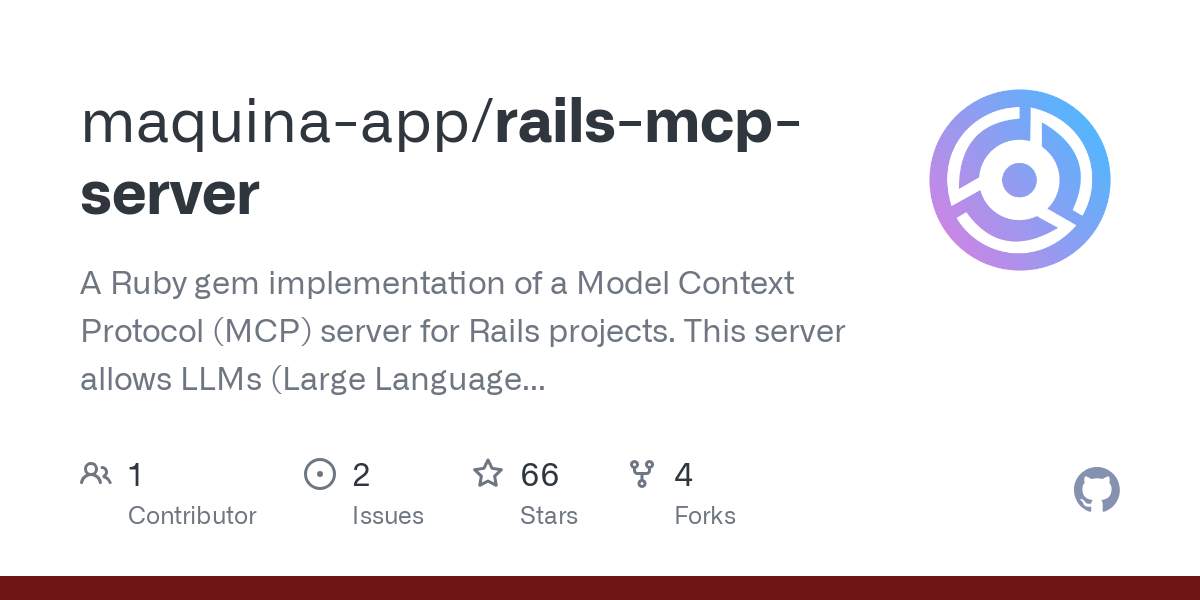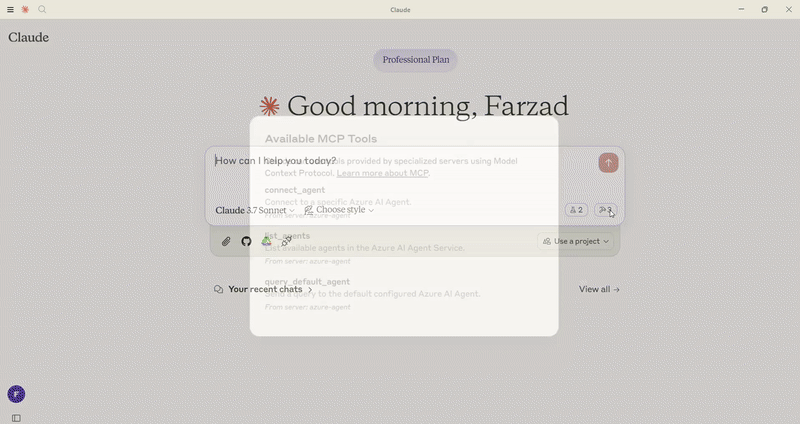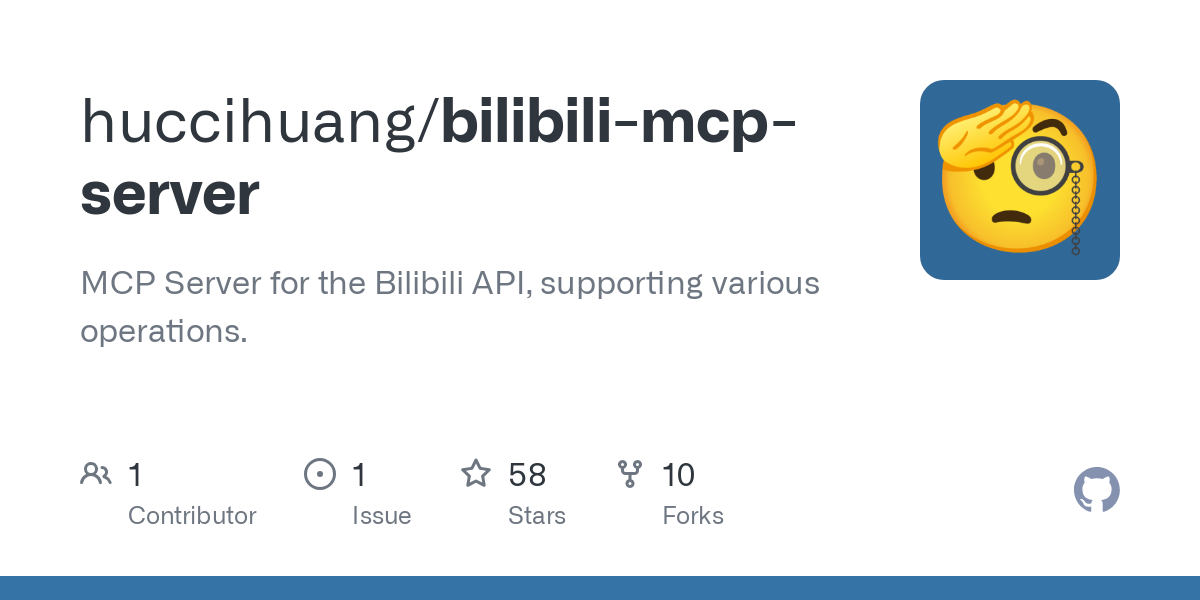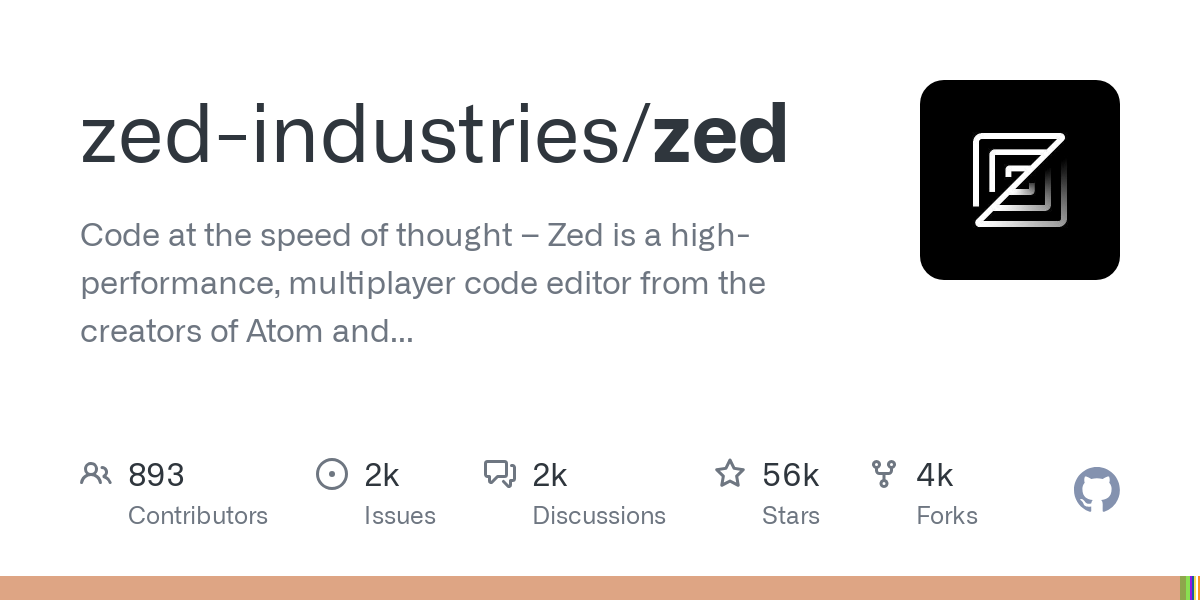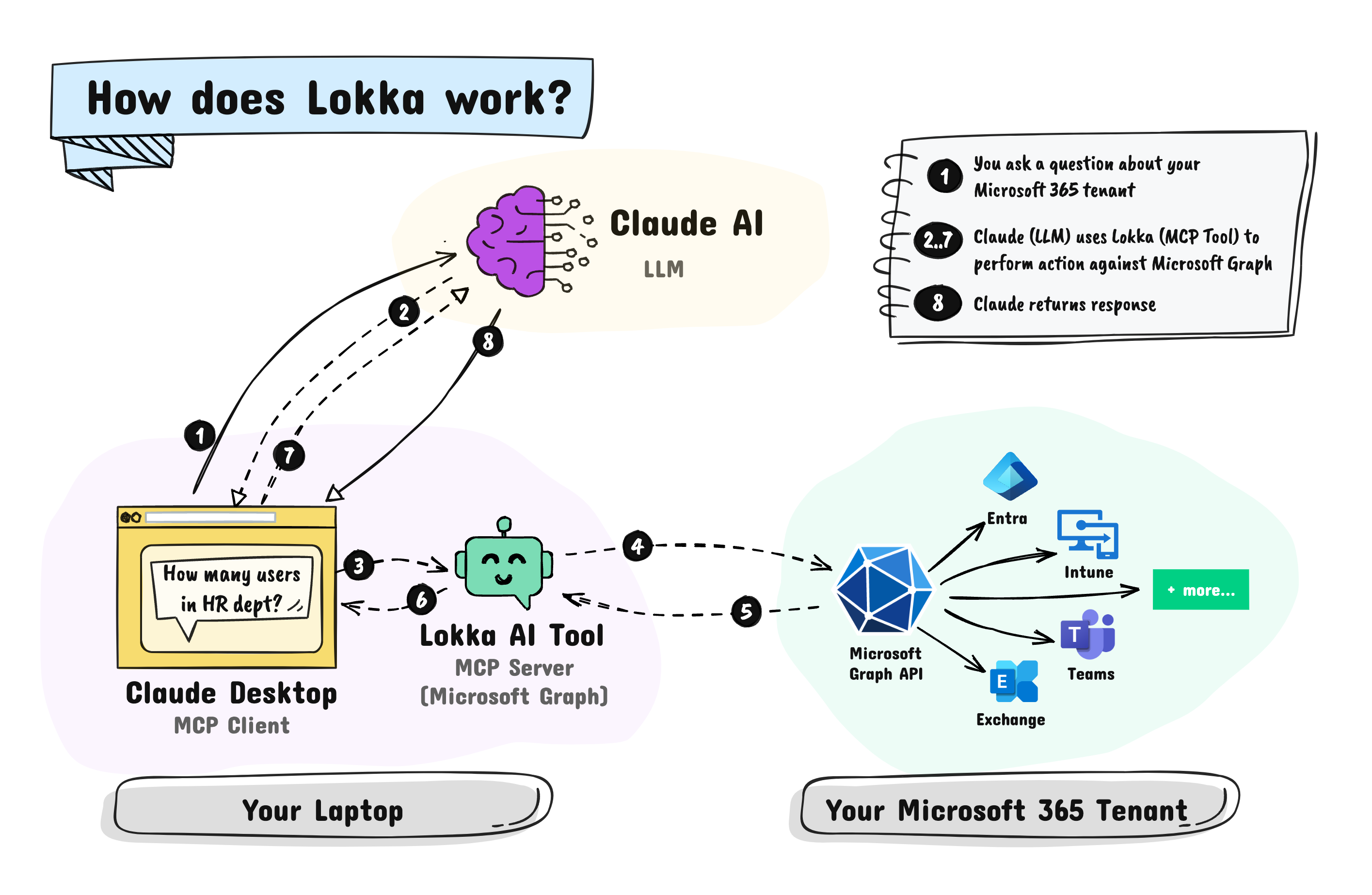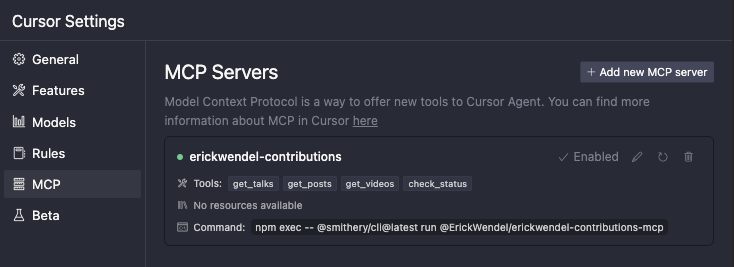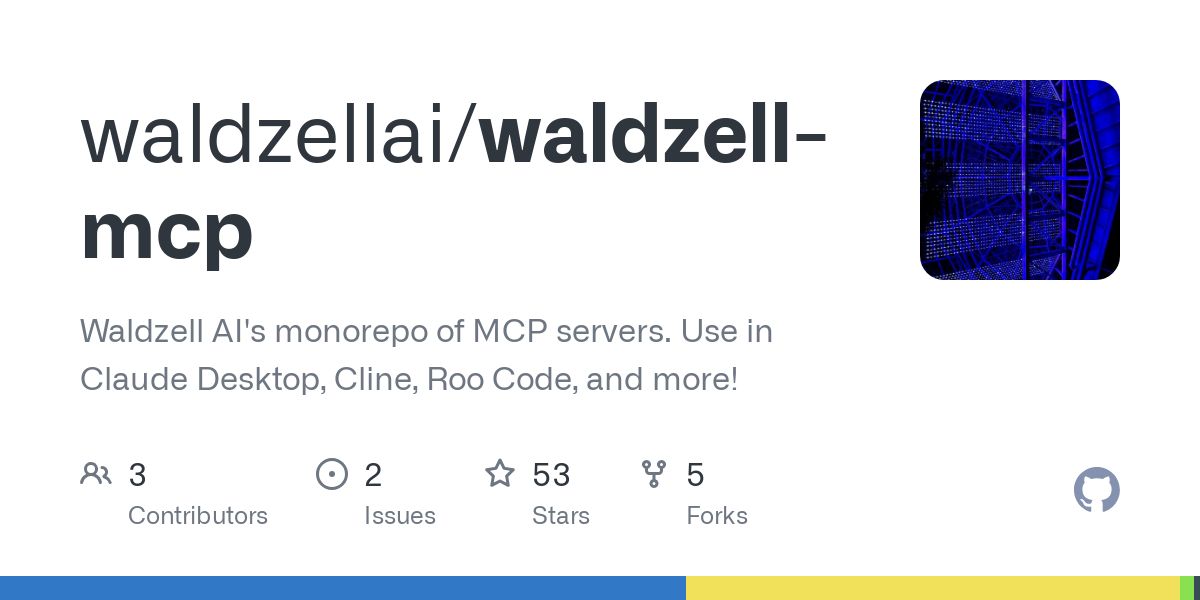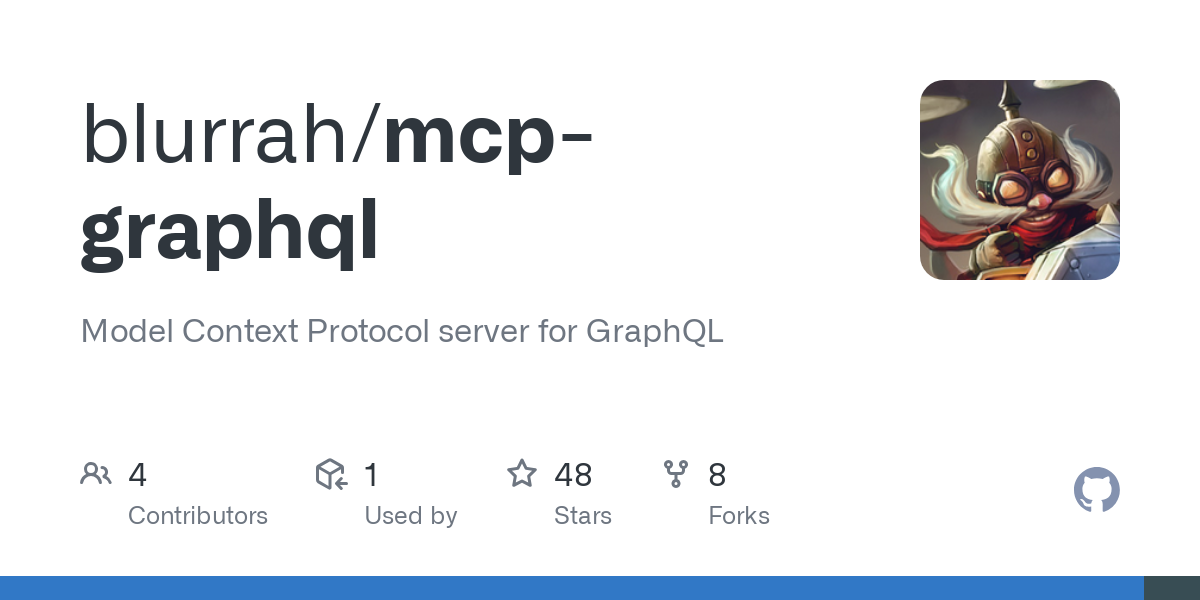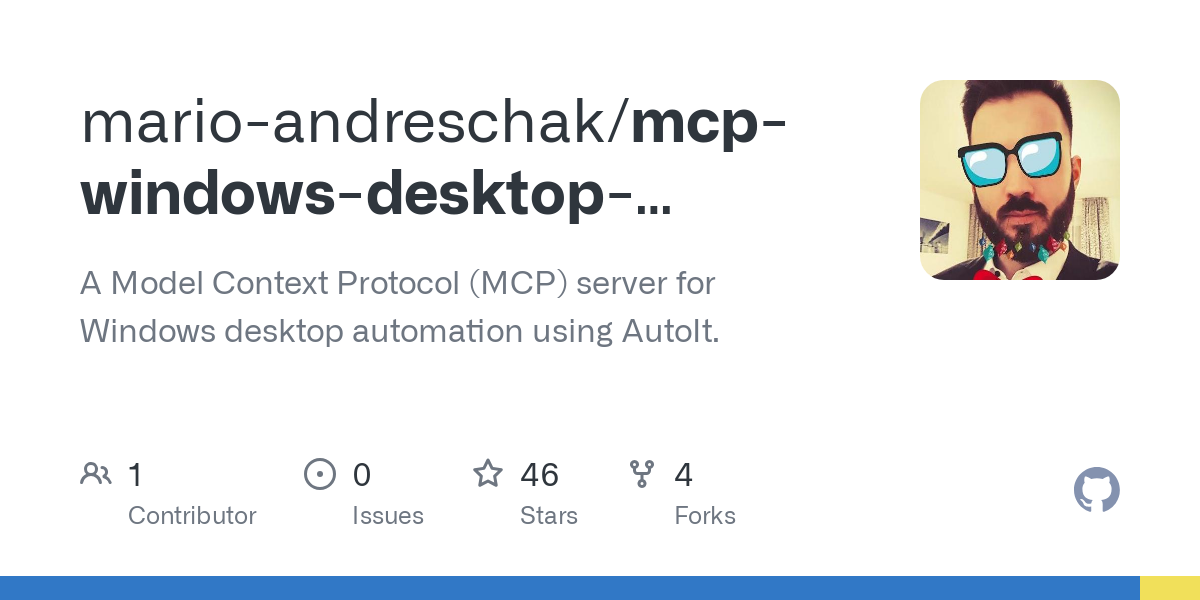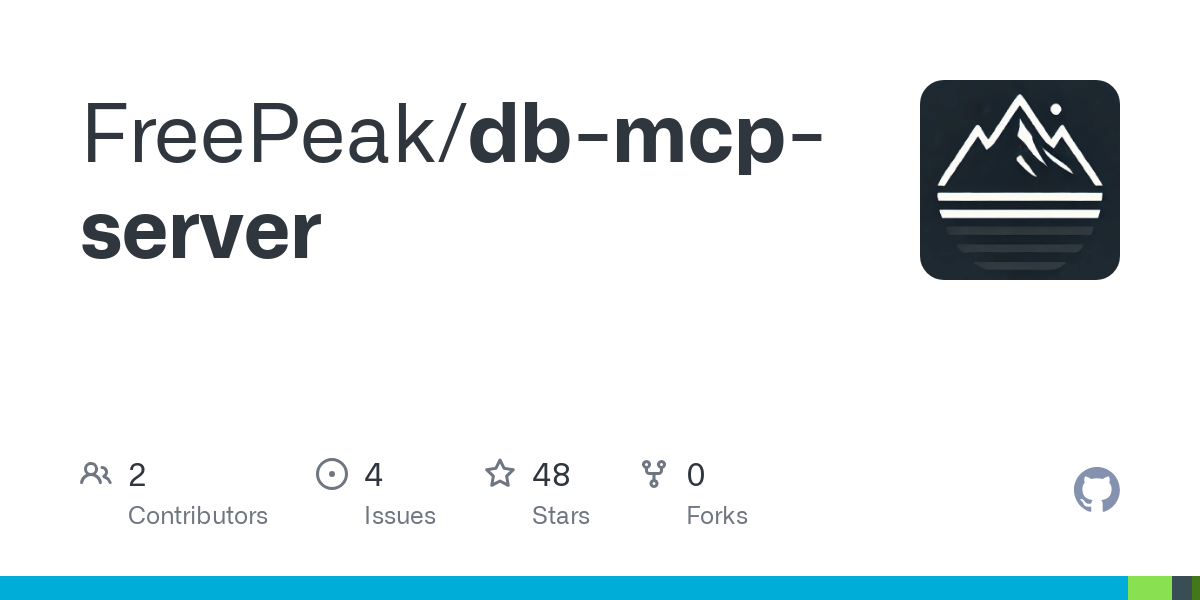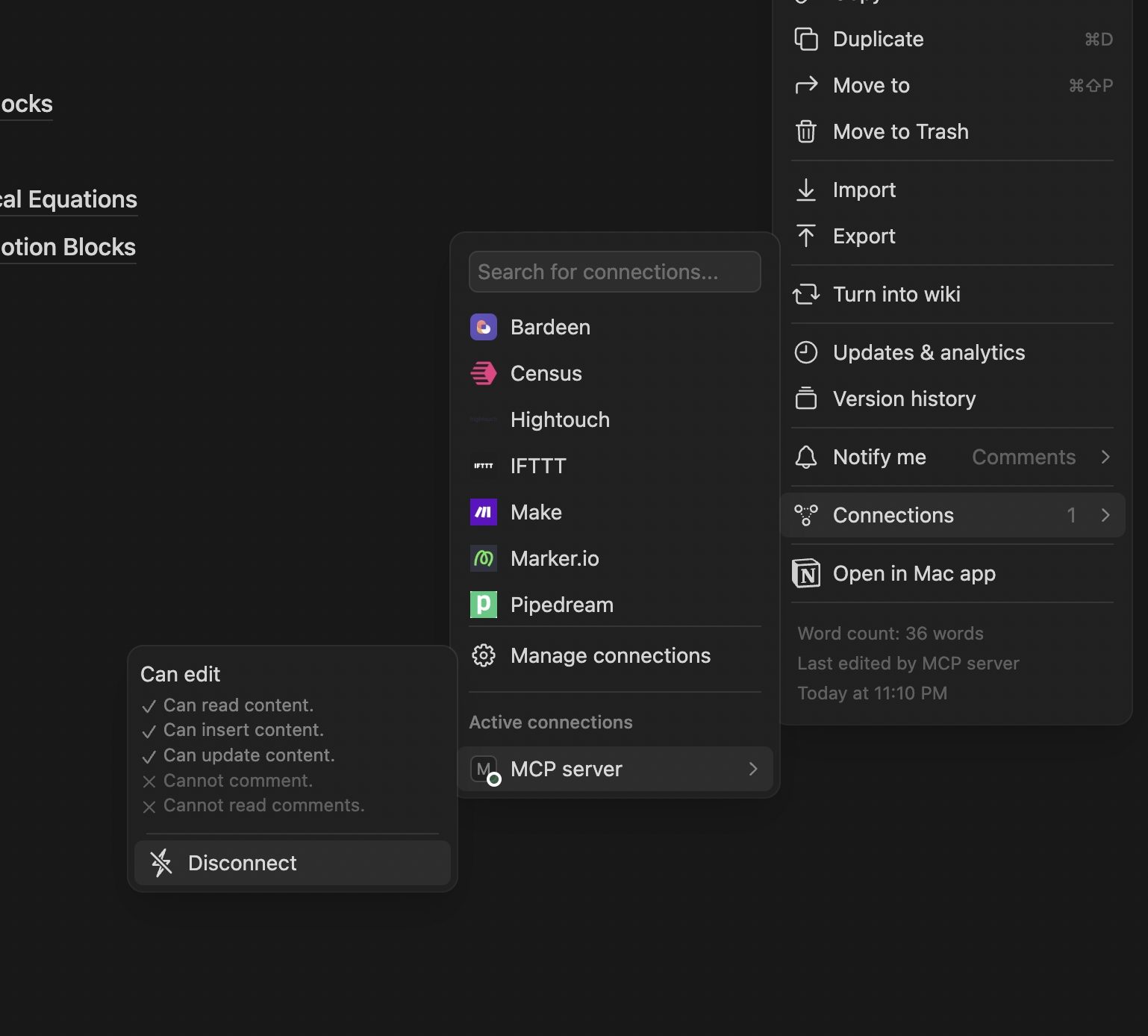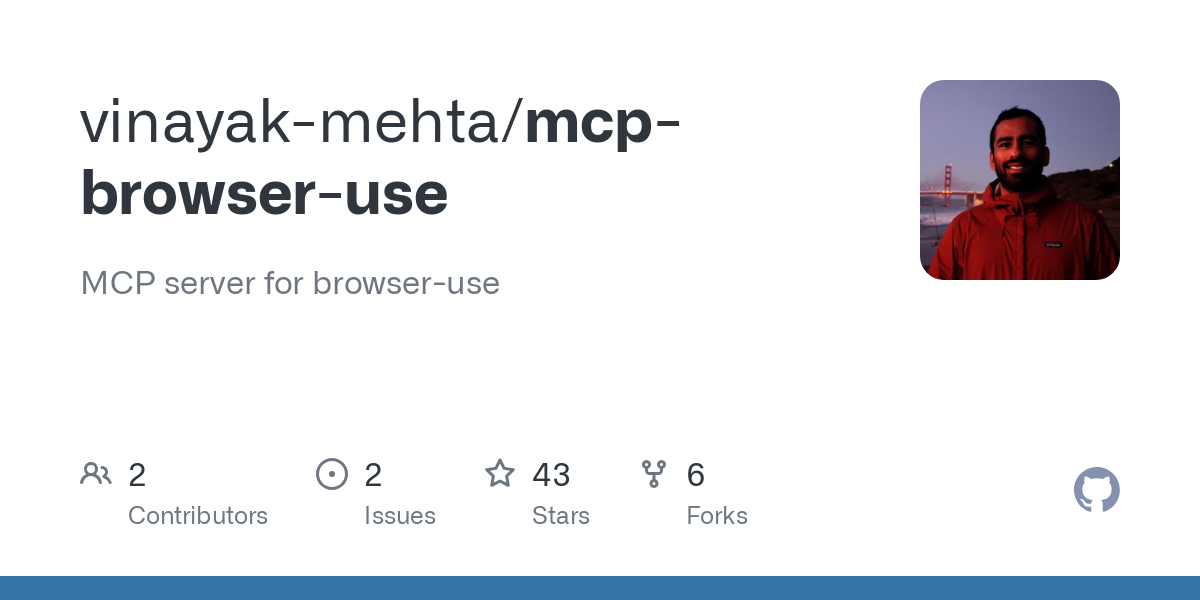All MCP Servers Complete list of MCP server implementations, sorted by stars
The Code Runner MCP Server is designed to execute code snippets in various programming languages, including JavaScript, Python, Ruby, Go, and more. It integrates with tools like VS Code and Claude Desktop, offering Docker support and seamless setup via Smithery. This server is ideal for developers looking to test and run code efficiently within their development environment.
Hermes MCP is an Elixir-based SDK designed to implement the Model Context Protocol (MCP), enabling seamless communication between AI applications and external tools. It offers features like protocol lifecycle management, multiple transport options (STDIO and HTTP/SSE), connection supervision, and structured logging. The library leverages Elixir's concurrency and fault tolerance to provide a reliable and efficient solution for integrating MCP into AI workflows.
The 1Panel MCP Server is a specialized implementation of the Model Context Protocol (MCP) designed to integrate seamlessly with 1Panel. It provides tools for managing system information, websites, certificates, applications, and databases. The server supports both stdio and SSE modes, offering flexibility in deployment and usage.
The MCP Montano Server is a TypeScript-based project designed to handle model context protocols efficiently. It provides a structured environment for development and production, with support for Node.js and npm. The server can be integrated into Cursor IDE for enhanced functionality, making it a versatile tool for developers working with model context protocols.
y-cli is a command-line interface chat application designed to bring AI conversations to your terminal. It supports multiple bot configurations, including OpenAI, Dify, and Deepseek, and integrates with the Model Context Protocol (MCP) for enhanced functionality. Features include flexible storage options (local JSONL files and Cloudflare KV/R2), interactive chat interfaces, and support for reasoning models. The app also offers a 'Deep Research' mode for advanced prompt configurations.
The Rails MCP Server is a Ruby gem that implements the Model Context Protocol (MCP), allowing Large Language Models (LLMs) to interact with Rails projects. It provides tools for managing multiple Rails projects, browsing project files, viewing routes, inspecting models, and retrieving database schema information. This server facilitates AI-driven code analysis, exploration, and assistance within Rails applications.
The Azure AI Agent Service MCP Server enables seamless integration with Azure AI Foundry, allowing users to connect to their existing Azure AI Agents. It supports secure connections using Azure credentials, maintains isolated conversation memory for each client session, and provides tools for querying and managing agents. This server is compatible with any MCP client and is designed to enhance workflows within the Azure AI ecosystem.
The Bilibili API MCP Server is designed to facilitate various operations with the Bilibili API using the Model Context Protocol (MCP). It supports functionalities like video search and is built to be easily integrated into MCP client configurations. The project utilizes the UV tool for dependency management, ensuring a streamlined setup process.
Zed is a cutting-edge code editor developed by the creators of Atom and Tree-sitter, focusing on high performance and multiplayer functionality. It supports real-time collaboration, making it ideal for team-based coding projects. Built with Rust, Zed offers a seamless and efficient coding experience across macOS and Linux, with plans to expand to other platforms.
Lokka is a Model Context Protocol (MCP) server designed to interact with Microsoft 365 through the Microsoft Graph API. It enables users to perform tasks like creating security groups, querying conditional access policies, and managing Intune device configurations using natural language commands. Lokka supports integration with AI models like Claude Desktop, allowing seamless management of Microsoft 365 tenants through intuitive queries.
The Rootly MCP Server is designed to streamline incident management by integrating with Rootly's API, allowing users to resolve production incidents directly from their MCP-compatible editors such as Cursor and Windsurf. It dynamically generates MCP resources based on Rootly's OpenAPI specification, with features like default pagination and limited API paths to optimize performance and security. This server is ideal for developers looking to enhance their incident response workflow without leaving their IDE.
This project provides a TypeScript MCP server that wraps the node-autoit-koffi package, enabling LLM applications to automate Windows desktop tasks through the MCP protocol. It exposes AutoIt functions as MCP tools, supports file access and screenshot capabilities, and includes prompt templates for common automation tasks. The server supports both stdio and WebSocket transports and is built with strict TypeScript typing.
The Multi-Database Model Context Protocol Server provides a standardized interface for AI models to interact with multiple databases concurrently. It supports MySQL and PostgreSQL, allowing AI assistants to execute SQL queries, manage transactions, explore schemas, and analyze performance. Built on Clean Architecture principles, it ensures maintainability and testability while offering a unified interface for diverse database systems.
The Notion MCP Server is a production-ready implementation of the Model Context Protocol (MCP) that allows AI assistants to seamlessly interact with Notion's API. It provides a comprehensive set of tools for reading, creating, and modifying Notion content through natural language interactions. The server supports database operations, batch processing, and integration with various MCP clients like Cursor and Claude Desktop.
The MCP Browser Integration Server facilitates seamless interaction between MCP clients and the browser by leveraging the browser-use framework. It eliminates the need for additional LLM API keys by utilizing the LLM already configured in your MCP client. This server simplifies the integration process, making it easier to extend MCP client functionalities to browser-based applications.
